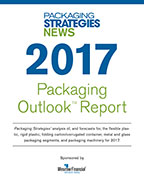World Plastics Council talks industry work on marine litter
The World Plastics Council (WPC) highlighted the collaborative work launched to address marine litter based on recommendations in “Stemming the Tide: Comprehensive Strategies to Prevent Marine Litter” recently at the United Nations Environment Assembly (UNEA-2). The WPC also announced that activities undertaken by plastic makers globally under the industry’s Declaration of the Global Plastics Associations for Solutions on Marine Litter (Declaration) have increased by 165%. The recently released 2016 Progress Report lists 260 industry-led projects either planned, underway or completed as of December 2015 to combat and reduce marine litter.
“Plastic makers are pleased to see this significant growth in the number of tangible solutions we are contributing to this global challenge,” says Abdulrahman Al-Fageeh, executive vice president, SABIC, and chairman of the World Plastics Council. “We’re focused on targeted work to help keep waste from becoming litter in the first place. This event gives us an opportunity to share our progress and key learnings.”
In addition to WPC representatives, other speakers at the session included Naoko Ishii, CEO of the Global Environment Facility, Nick Mallos, director of Ocean Conservancy’s Trash Free Seas Alliance (TFSA), and Keith Christman, American Chemistry Council. Last year, TFSA released the report “Stemming the Tide: Land-based strategies for a plastic-free ocean,” a first-of-its-kind analysis conducted with the McKinsey Center for Business and Environment, that evaluates specific land-based solutions for plastic waste in the ocean. Solutions like improving municipal solid waste collection, systemic sortation to improve recycling, stopping illegal dumping and finding sustainable solutions for harder-to-recycle materials are featured as priorities.
“Plastics deliver tremendous sustainability benefits across a range of applications, but after use they must still be treated as a valuable resource by reducing wasteful use, reusing and recycling as much as we possibly can to prevent these materials from ending up as litter,” explains Al-Fageeh. “The global plastics industry has organized to work together on the challenge of marine litter through sponsoring research and working in public-private partnerships.”
Looking for a reprint of this article?
From high-res PDFs to custom plaques, order your copy today!







